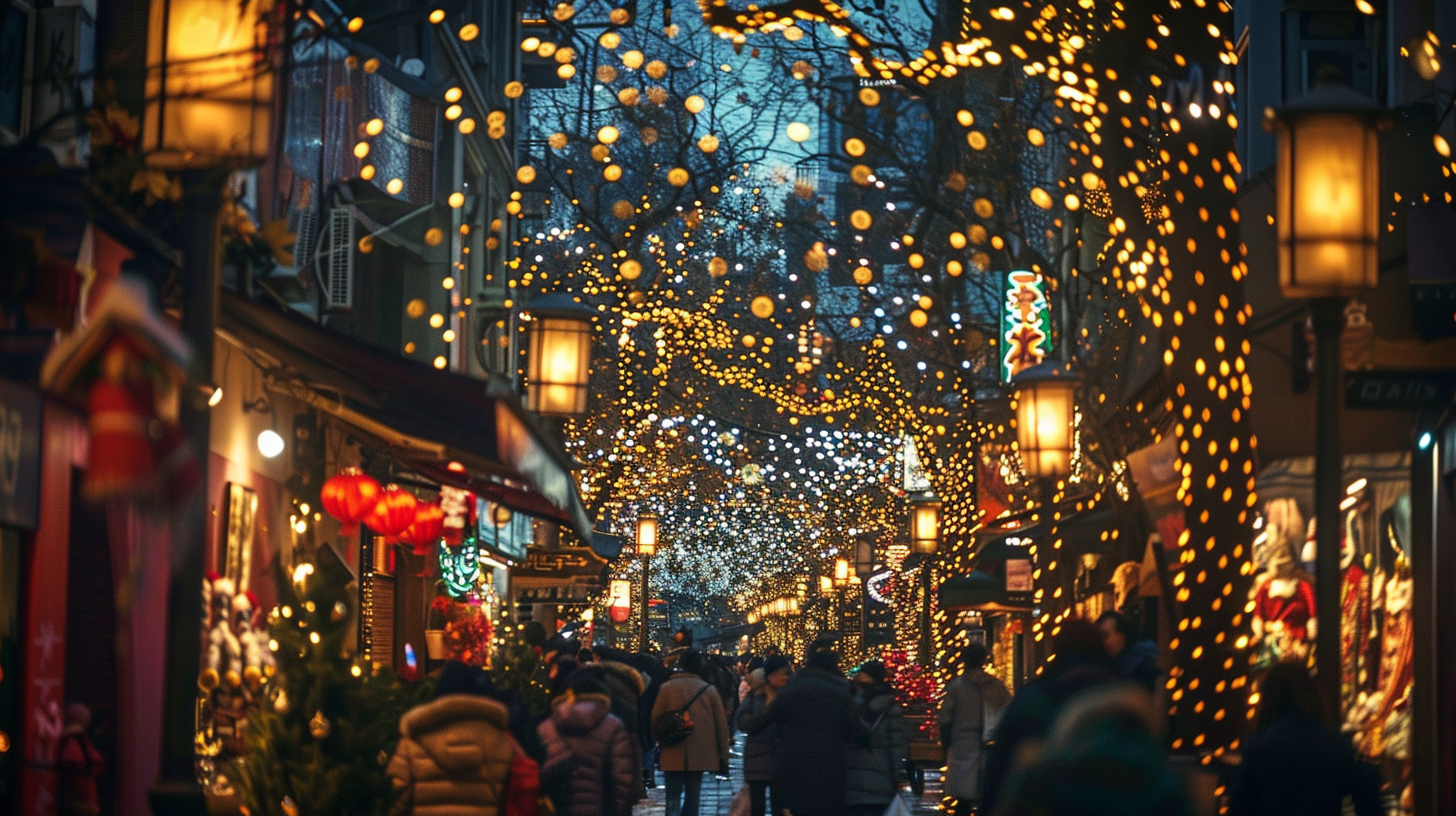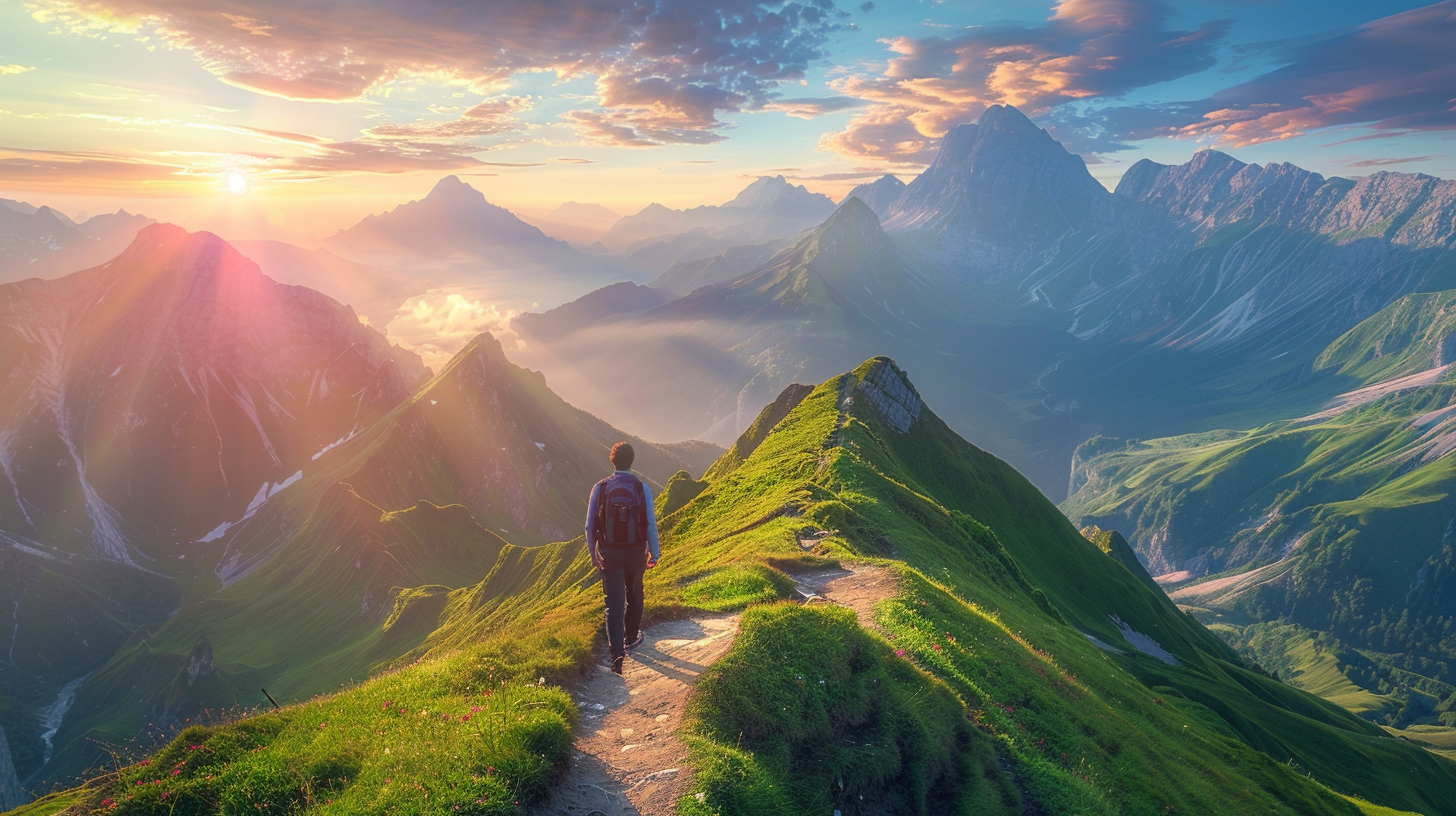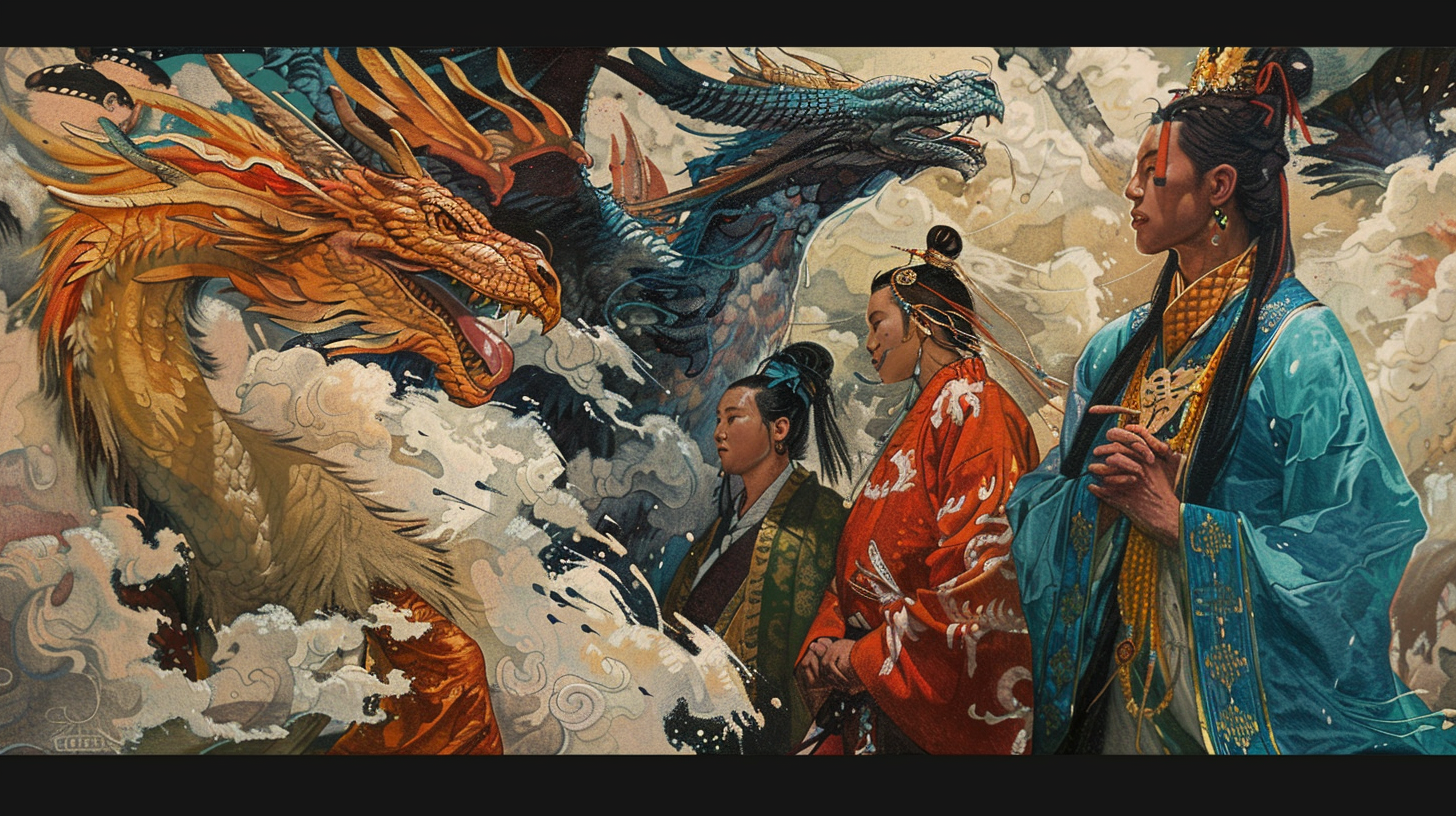Table of Contents Show
Just as every thread in a tapestry adds depth and color to the overall picture, so do holiday celebrations contribute to the rich fabric of global culture. We’re intrigued by how these festivities not only bring people together but also serve as a mirror reflecting societal values, history, and changes over time. From the unity sparked by communal gatherings to the subtle shifts in tradition under the influence of globalization, there’s a complex interplay at work. Let’s explore this further, considering how these celebrations shape and are shaped by the societies that cherish them, and ponder what this means for our collective future.
Key Takeaways
- Holidays reflect cultural histories, values, and the resilience of human communities.
- Celebrations foster unity, inclusivity, and mutual understanding within diverse societies.
- Globalization and cultural exchange continually reshape holiday traditions worldwide.
- Sustainable and inclusive practices in celebrations promote environmental consciousness and cross-cultural respect.
The Meaning Behind Festivities
Across cultures, we celebrate holidays not just for the joy they bring, but also for the rich meanings and traditions they embody. These occasions offer us a chance to pause, reflect, and appreciate the depth of our human experience. They’re not merely days off work or excuses for a party; they represent the core of our histories, our struggles, and our triumphs.
Take, for instance, the way we honor the changing seasons. Whether it’s welcoming the renewal of life in spring or the harvests in autumn, we’re reminded of the earth’s generosity and our reliance on its cycles. This connection to nature isn’t just about gratitude; it’s a call to remember our role in preserving this balance for generations to come.
Furthermore, many holidays have roots in historical events that shaped our societies. They serve as commemorations of pivotal moments when people fought for freedom, justice, or peace. By celebrating these days, we’re not just recalling the past; we’re reigniting the ideals that drove those efforts. It’s a way to reaffirm our commitment to those values in our current context.
Essentially, the festivities we hold dear are much more than dates on a calendar. They’re opportunities to reinforce our understanding of freedom, to challenge us to think critically about our place in the world, and to inspire us to live up to the principles we cherish. In celebrating, we’re not escaping from reality; we’re diving deeper into what makes us truly human.
Unity and Community Bonds
Holidays serve as powerful catalysts for strengthening the bonds within our communities, drawing us closer through shared experiences and traditions. These celebrations, regardless of our diverse backgrounds, have a unique way of reminding us that we’re part of something larger than ourselves. They encourage us to set aside our daily routines and challenges, offering us a chance to reconnect with our community and build relationships that last a lifetime.
- Creating memories together: There’s nothing like holiday traditions to create lasting memories. Whether it’s the laughter that fills the air during a festive parade, the warmth of sharing a meal, or the joy of a communal dance, these moments become the glue that holds our community together.
- Fostering inclusivity and understanding: Holidays often open doors to the heart of our cultures, inviting others to partake and learn. This not only strengthens the bonds between us but also nurtures a sense of belonging and acceptance across different cultural divides.
- Supporting one another: From collaborative preparations to the sharing of resources, holiday celebrations encourage us to support each other. This collective effort not only makes the celebrations more enjoyable but also reinforces the idea that we’re here for each other, in good times and in bad.
In embracing the spirit of holidays, we’re not just enjoying a break from our everyday lives; we’re actively participating in the creation of a community that values unity, respect, and mutual support. This sense of community and togetherness is what truly makes holidays special, offering us freedom from isolation and the joy of being part of a larger family.
History and Tradition Interplay
Building on the shared experiences that holidays bring, it’s important to explore how history and tradition play a pivotal role in shaping these celebrations. Each festivity we’re familiar with today isn’t just a spontaneous gathering; it’s a tapestry woven from centuries, sometimes millennia, of cultural practices, historical events, and collective memories. These elements don’t just add color to these occasions; they’re the very threads that hold our social fabric together.
We’ve seen how traditions serve as a bridge, connecting us not just to each other, but also to our ancestors. They’re a proof to human resilience, adaptation, and the enduring quest for meaning. Take, for example, the way we light candles during Diwali or Hanukkah. It’s more than a mere symbolic act; it’s a reaffirmation of light’s triumph over darkness, a theme as relevant today as it was centuries ago.
Furthermore, the foods we share, the songs we sing, and the stories we tell during these times aren’t random selections. They’re carefully curated expressions of our collective histories, embodying the struggles, victories, and values that have shaped us. These elements offer us a sense of belonging and identity, grounding us in a world that’s rapidly changing.
In embracing these traditions, we’re not just paying homage to the past. We’re actively participating in the creation of our future. As we gather to celebrate, we’re also reinterpreting and reinventing these traditions, making them relevant for our times. This dynamic interplay between history and tradition guarantees that our celebrations remain vibrant, meaningful, and, most importantly, a source of freedom and joy.
Globalization’s Impact
As the world becomes increasingly interconnected, globalization has greatly reshaped the way we celebrate and perceive holidays. What was once isolated to specific regions or cultures now finds itself on the global stage, influencing and being influenced by a myriad of traditions and practices. This exchange isn’t just limited to cultural appropriation or commercialization; it’s about the freedom to choose, adapt, and enjoy holidays in ways that resonate with us personally, regardless of where we’re from.
Here are a few key ways globalization has impacted holiday celebrations:
- Wider exposure to diverse celebrations: We’re now more aware than ever of how different cultures celebrate their unique holidays. This awareness fosters a deeper understanding and appreciation of global diversity.
- Adoption and adaptation of foreign holidays: Many of us now celebrate holidays that aren’t traditionally part of our own culture. Halloween in Japan and Diwali in the United States are perfect examples of this cross-cultural exchange.
- Commercialization and globalization of gift-giving: The practice of giving gifts, once a simple gesture, has become a global phenomenon, with Black Friday sales and Cyber Monday deals making waves worldwide.
In embracing these changes, we’re not abandoning our traditions; we’re enriching them, allowing ourselves the freedom to celebrate humanity’s collective diversity. Globalization hasn’t just changed the way we celebrate; it’s given us the liberty to blend, innovate, and create new traditions that cross borders, making the world a smaller, yet infinitely more diverse place.
Religious Significance Explored
Exploring the religious significance of holidays, we find that these celebrations often stem from deeply rooted spiritual traditions and beliefs. Whether it’s the reflective solemnity of Yom Kippur, the joyful giving of Eid al-Fitr, or the birth celebration of Christmas, each holiday serves as a vivid reminder of the spiritual milestones and foundational stories that shape a community’s faith and practices.
We recognize that these occasions aren’t just days off from work or opportunities for commercial exploitation; they’re crucial expressions of human longing for connection, understanding, and meaning. They offer us a unique lens through which we can see the diverse ways people around the world honor their religious heritage and seek to embody its teachings in their lives. It’s about more than just following rituals; it’s about the personal and communal journey towards spiritual fulfillment and enlightenment.
These celebrations encourage us to look beyond our immediate surroundings and appreciate the rich tapestry of belief that contributes to our global community. They challenge us to respect and learn from the differences that define us, all the while recognizing the common human longing for peace, love, and a sense of belonging that unites us.
In embracing the religious significance of holidays, we’re not just acknowledging the past; we’re actively participating in a tradition that has the power to transform lives and communities. It’s a call to remember, reflect, and renew our commitment to the values and beliefs that give our lives depth and direction. This exploration allows us to appreciate the freedom we have to express and celebrate our spiritual identities in a world that’s wonderfully diverse and interconnected.
National Identity and Pride
Holidays also serve as powerful expressions of national identity and pride, reflecting a country’s cultural heritage and shared values. They’re not just days off; they’re vibrant, living narratives that tell us who we are and where we’ve come from. These celebrations bind us together, reminding us of our collective journey and the struggles we’ve overcome to forge our unique identities.
When we delve into the essence of these holidays, it’s clear they’re about more than just festivities. They’re a proof of our resilience, our achievements, and our aspirations for freedom and justice. Across the globe, national holidays inspire a sense of belonging and pride that transcends the ordinary, creating moments where we’re united in our diversity.
To make this point relatable, consider how:
- Parades and public performances often showcase traditional music, dance, and attire, immersing us in the richness of our cultural heritage.
- Ceremonial speeches and displays recount historical milestones, reinforcing our understanding of the sacrifices made for our freedoms.
- Community gatherings and shared meals bring us together, fostering a sense of solidarity and mutual respect among diverse groups within our nation.
In celebrating these holidays, we’re not only honoring our past; we’re actively shaping our national identity and nurturing a collective pride that stands firm against the challenges of time. They remind us of our shared values and the freedoms we cherish, encouraging us to look forward with hope and determination.
Economic Influences
We’ve observed how holiday celebrations impact economies worldwide, from consumer spending trends to the boosts in business revenue. These festivities not only encourage shoppers to open their wallets but also push businesses to adapt their market strategies creatively. Let’s explore how these economic influences shape the holiday season and what this means for both consumers and companies.
Consumer Spending Trends
Amid holiday celebrations, consumer spending trends heavily influence economic landscapes worldwide. We’ve noticed that as people embrace the spirit of giving and celebration, their spending habits shift, revealing fascinating patterns that ripple through economies. This trend isn’t just about buying gifts; it’s a complex phenomenon that encompasses various aspects of consumer behavior.
- Gift purchasing skyrockets, but we’re also seeing a surge in donations to charities. It’s like everyone’s heart grows three sizes.
- Travel expenses soar as folks head home or vacation, injecting cash into different parts of the globe.
- Culinary indulgence increases, with families and friends splurging on festive feasts and seasonal treats.
These trends reflect our collective desire for connection and celebration, driving economic activity in unique, often joyful ways.
Business Revenue Boost
The festive season’s surge in consumer spending greatly boosts business revenues, impacting economies on a global scale. We see shops bustling, online sales skyrocketing, and services in high demand. This isn’t just about buying gifts; it’s about the experiences, the gatherings, and even the travel plans that come alive during holidays. For many businesses, this period is the golden quarter, where they earn a significant portion of their annual income. We’re all searching for that perfect gift, the best holiday deal, or the most memorable experiences, and in doing so, we inject vitality into our economies. It’s a time when consumer confidence peaks and spending habits shift, offering a much-needed lifeline to businesses, big and small, and keeping the wheels of our economy turning.
Market Adaptation Strategies
As holiday seasons reshape consumer spending habits, businesses must adapt their strategies to thrive in this economically fluctuating environment. We’ve seen firsthand how adapting not only keeps us afloat but can also set the stage for unprecedented growth. By embracing the unique demands of each holiday, we find ourselves at the forefront of market innovation and customer satisfaction.
- Offer limited-time products that resonate with the holiday spirit.
- Leverage social media to create buzz and connect with customers on a personal level.
- Implement flexible return policies to accommodate the increase in gift purchases.
Embracing these strategies allows us to navigate the economic waves of the holiday seasons. It’s about finding the balance between tradition and innovation, ensuring our freedom to choose how we meet our customers’ evolving needs.
Environmental Considerations
We must consider the environmental impact of our holiday celebrations, aiming for sustainability while preserving the joy of these occasions. It’s easy to get caught up in the festivities, but the choices we make can have a lasting effect on our planet. From the excessive use of single-use decorations to the carbon footprint left by holiday travel, it’s clear we’ve got work to do.
Let’s not forget, we’re all in this together, and it’s entirely possible to celebrate responsibly without dampening our spirits. Opting for eco-friendly decorations, supporting local artisans, and choosing gifts that don’t contribute to the waste problem are steps in the right direction. We’ve got the power to transform our traditions in ways that honor our planet.
Reducing our carbon footprint doesn’t mean we have to sacrifice the essence of our celebrations. Imagine the difference we could make by choosing shared experiences over physical gifts, or by embracing the beauty of handmade and heirloom decorations that tell a story and can be passed down through generations. These choices not only benefit the environment but also add a deeper meaning to our festivities.
We’re at a pivotal point where our actions can shape the future of holiday celebrations. By being mindful of our environmental impact, we’re not just preserving the planet for future generations; we’re also embracing a freedom that comes from knowing we’re part of the solution. Let’s celebrate with intention, making choices that reflect our love for the world around us. Together, we can create traditions that are sustainable, meaningful, and joyous.
Future of Cultural Celebrations
Looking ahead, cultural celebrations must evolve to reflect our growing awareness of environmental and societal needs, guaranteeing they remain relevant and respectful in a changing world. We’re at a crossroads where tradition meets innovation, urging us to rethink how we celebrate without losing the essence of our heritage. It’s about striking a balance between preservation and progress, guaranteeing our festivities can be enjoyed by generations to come.
We’ve identified a few key areas that could shape the future of our cultural celebrations:
- Sustainability Practices: Incorporating eco-friendly materials and methods, from decorations to dishes, guarantees our festivities don’t harm the planet.
- Inclusivity: Making sure our celebrations are welcoming to everyone, regardless of background, to foster a sense of community and understanding.
- Digital Integration: Embracing technology to share our traditions with a wider audience, making them accessible to those who cannot physically attend.
As we move forward, we’re excited about the possibilities. We see a future where our celebrations not only honor our past but also pave the way for a more inclusive, sustainable, and interconnected world. It’s about embracing change while staying true to our roots, and we’re all for it. After all, freedom in how we celebrate is the ultimate expression of our cultural richness and diversity. Let’s guarantee our traditions thrive in a way that’s fitting for the world we live in today, and the world we hope to create for tomorrow.
Conclusion
In the tapestry of time, we’ve danced around bonfires and feasted under starlit skies, weaving our stories into the fabric of the universe. Holidays aren’t just dates on a calendar; they’re the heartbeats of our cultures, pulsing with the rhythms of history, faith, and community. As we sail into the future, let’s safeguard these celebrations, mindful of their impact on our planet and economies. Together, we can guarantee that our traditions continue to unite and inspire, bridging past and future.








